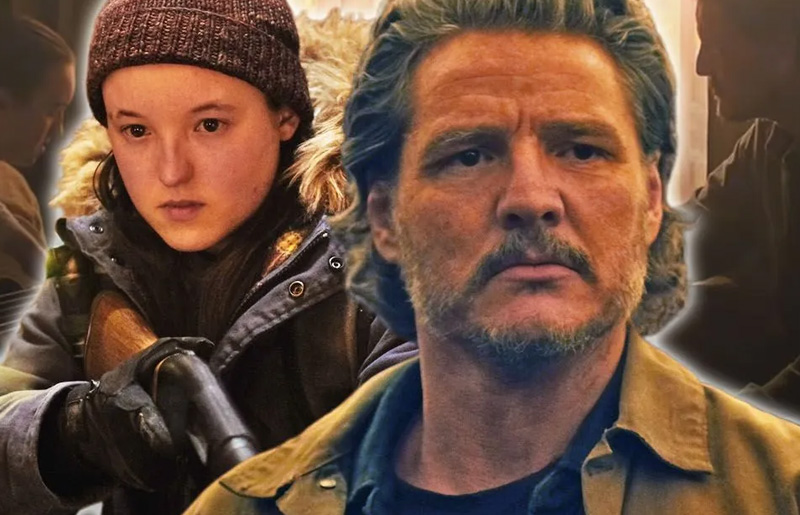
The Last of Us, HBO’s acclaimed post-apocalyptic series based on the popular video game, has wrapped its second season, leaving behind a trail of controversy, emotional upheaval, and bold narrative shifts. While Season 1 focused on the deep bond between Joel (Pedro Pascal) and Ellie (Bella Ramsey), Season 2 dares to dismantle it — radically — and invites viewers to embrace an entirely new dynamic.
The first season ended with Joel making a deeply controversial decision: killing an entire Firefly unit to save Ellie, thereby destroying what might have been humanity’s last hope for a cure. That action planted a moral time bomb, and Season 2 didn’t wait long to detonate it. In only the second episode, Joel is killed by Abby (Kaitlyn Dever), an elite soldier seeking revenge for her father, one of the Fireflies Joel had murdered.
This pivotal moment shattered expectations and instantly shifted the narrative’s center of gravity to Ellie and Abby — two characters bound by grief and vengeance.
This season portrays a very different Ellie: one driven by pain, rage, and a desperate need for revenge. She leaves the relative safety of Jackson to hunt down Abby and the Washington Liberation Front in Seattle. On this journey, Ellie becomes a far more complex — and at times, unlikable — protagonist. Her obsession blinds her to the cost of her actions. She abandons her friends, commits brutal acts, and slowly loses herself.
One of the most shocking moments occurs when Ellie accidentally kills a pregnant woman, Mel, and is asked to save the unborn child in her dying breath. This harrowing scene forces Ellie — and us — to face how far she’s gone.
The most daring choice by showrunners Craig Mazin and Neil Druckmann is shifting the spotlight from Ellie to Abby. Inspired by the structure of The Last of Us Part II, the second video game in the franchise, this move mirrors how players were made to see the story from both sides. In TV, however, such perspective shifts are rare and risky.
The season finale closes not on Ellie, but on Abby, asleep with a book on her chest, before stepping out onto a stadium balcony. The screen reads: “Seattle – Day One.” It's a quiet yet powerful transition, suggesting the next season may rewind and tell the story from Abby’s point of view — the same events we just witnessed, but through new eyes.
A core strength of The Last of Us is its unflinching portrayal of violence and its aftermath. This is not a world of clear heroes and villains. Every action has a cost. Joel’s past caught up with him. Ellie is walking the same path. And Abby’s revenge has left her equally haunted.
By the end of Season 2, both women are scarred — physically and emotionally. They’ve lost loved ones, shed blood, and are locked in a destructive cycle. The show refuses to glorify their actions. Instead, it emphasizes the tragic weight of vengeance.
Episode six, titled The Price, is arguably the most powerful of the season. Through flashbacks, we revisit Joel and Ellie’s time in Jackson. We witness birthdays, small moments of joy, and heartbreaking truths. One of the most gut-wrenching scenes shows Joel finally admitting the lie he told Ellie in Season 1 — a confession that comes just hours before his death.
The episode offers viewers a glimpse of what could have been: a father-daughter bond healing over time. Its beauty lies in its tragedy — knowing that it's already too late.
Season 2 of The Last of Us challenges viewers. By killing Joel early, pushing Ellie toward darkness, and centering Abby, it refuses to follow traditional TV formulas. For some, this approach is refreshing. For others, it's alienating. The pacing, use of flashbacks, and character focus shifts may feel disjointed, but they serve a greater thematic purpose: showing how trauma warps identity.
The concern now is whether fans will remain engaged with this new trajectory — especially with a third season likely to introduce even more unfamiliar characters.
HBO has confirmed that The Last of Us will continue, but the third season may not begin production until next year. Based on the game’s structure, it’s likely we’ll see more of Abby’s past, her battles with the mysterious militant group opposing the WLF, and perhaps a deeper look into how society has fractured post-pandemic.
But the emotional core has shifted. Joel is gone. Ellie is broken. Abby is emerging as a complex, central figure. Can the show succeed without its original duo? Or has it alienated too many viewers along the way?
Season 2 of The Last of Us is a bold and often brutal reimagining of what a post-apocalyptic narrative can be. It forces us to confront uncomfortable truths: about revenge, identity, and the limits of empathy. Whether you loved or hated the season, it’s impossible to deny the ambition behind it.
As we look ahead, one thing is clear: in The Last of Us, no one gets out unscathed. Not the characters. Not the viewers. And certainly not our hearts.